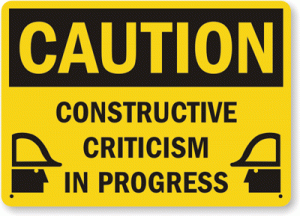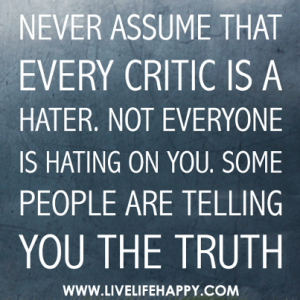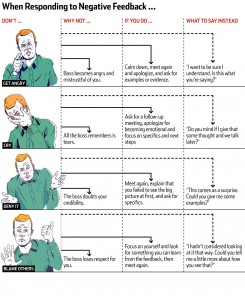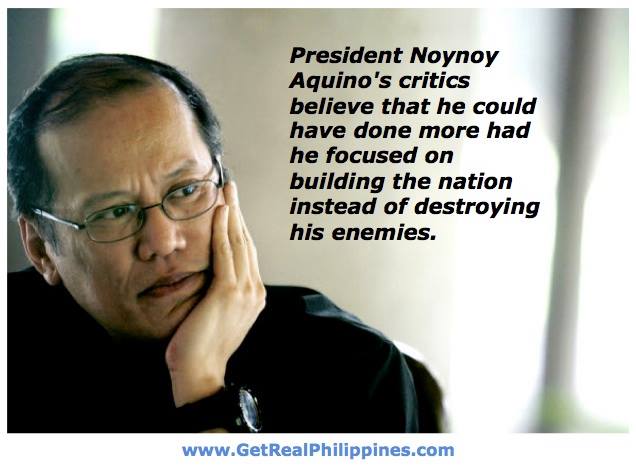
Philippine president Benigno Simeon “BS” Aquino does not hide the fact that he does not like being criticized. He takes every opportunity whenever he speaks out in front of a crowd to express just how much and what he thinks of them; his recent State of the Nation Address (SONA) last July 28, 2014 was no exception.
“Social news network” site Rappler regularly publishes works by Nicole Curato, a sociologist, who, according to her short profile, is “currently based in Canberra for her post-doctoral research fellowship at the Centre for Deliberative Democracy and Global Governance.” Her latest article is called “The President’s critique of critics”. As she has pointed out, and as can be gleaned from the SONA itself, BS Aquino was quick to reduce his engagement with critics to a populist “us-versus-them” oversimplification (“The truth is that I am not the one these people oppose, but the entire Filipino people who are now reaping the benefits of the straight path.”). He also considers his critics as distractions who will keep him from solving the problems of the country.
In the same article, Ms. Curato points out that for BS Aquino, trust is the foundation of good governance. People trust that their leaders and government work for them and strengthen institutions. Yet she also mentions that a critical citizenry is the key to upholding and strengthening democratic institutions – those same institutions that Filipinos are only too proud to swear that they live by, and those supposedly “restored” by the 1986 EDSA revolution with BS Aquino’s mother Cory as the figure head of it all.
| SUPPORT INDEPENDENT SOCIAL COMMENTARY! Subscribe to our Substack community GRP Insider to receive by email our in-depth free weekly newsletter. Subscribe to our Substack newsletter, GRP Insider! Learn more |
Trust is important to take part in the collective project of nation-building, for it is trust that gives us confidence that our participation matters. But trust also involves judgment. We take part in politics because we expect some form of outcome – perhaps a change of behavior from our leaders or a reasonable explanation as to why our demands cannot be met. When reality falls short of these expectations – which, clearly, is often the case – the voice of the critical citizen is needed.
To continue to trust, to let things be is to weaken accountability. It is misplaced trust that compromises people’s capacity to spot emerging practices of tyranny. It is misplaced trust that makes one think that FOI is unnecessary. There is a reason why maximizing citizen trust in institutions is undesirable, and it is because, as a distinguished professor puts it, “institutions are concentrations of power with the potential for great evil.”
Finally, she defines two concepts – reflexive capacity, and intellectual monocropping, and reemphasizes the need for a critical and engaged citizenry:
Reflexive capacity is an organization’s ability to receive, interpret and process a range of competing ideas. It ensures that inclusive governance is meaningful and not merely reduced to the “shallow accommodation of civil society.” It is an antidote to what scholars call “intellectual monocropping” – the practice of hiring like-minded people in an organization which makes it impossible to think outside the box.
…Idealizing trusting instead of critical citizens is a disturbing proposition at this important juncture. We need skeptics who can challenge the government to recognize its own fallibility and espouse intellectual humility to correct its mistakes.
The worst enemy of our democracy is not a cottage industry of dissenters but an echo chamber among loyalists. [boldface emphasis by author] Critical citizenship is most important in critical times. Without it, our country will look like what we saw last Monday – a room of sharply dressed oligarchs very pleased with themselves and their leader, while outside, in the humid heat of tropical Manila, protesters are blasted with water cannon as they confront the rhetoric of power.
One will soon realize that all this talk of the need for critical citizenry and the importance of criticism in strengthening democratic institutions comes crumbling down because of one inescapable reality:
BS Aquino simply does not listen to those who oppose him.
 Whether out of single-mindedness, or stubbornness, the evident and persistent outcome is that BS Aquino has simply refused to be open and receptive to unfavorable views, and refused to engage his critics in a civilized manner, and listen to what they have to say.
Whether out of single-mindedness, or stubbornness, the evident and persistent outcome is that BS Aquino has simply refused to be open and receptive to unfavorable views, and refused to engage his critics in a civilized manner, and listen to what they have to say.
If trust is the foundation of good governance, as BS Aquino would like to believe, then there is a hard question that he must confront inevitably:
If BS Aquino refuses to listen to his critics, WHY should we trust him?
It would be nothing but NAÏVE for the citizenry to be trustful but unquestioning of their government. No government is immune to mistakes, and once government sees itself as no longer accountable to the people, then that opens up the door to abuse of power.
Surrounding himself only with sycophants has only added to his perception that he can never be wrong.
It takes two to tango. If BS Aquino wants to restore trust in government, then he must show the people that his government is worthy of it. BS Aquino must trust the voices of the people criticizing him want to be heard because they want him to improve, not because they want to bring him down. If he indeed IS a leader then he must listen to ALL the voices of his citizens, not just the ones who agree with him.
If BS Aquino had simply taken the time to listen to his critics, and not merely “pleaded or prayed for them”, if he had shown more willingness to respond to negative feedback in a more receptive manner, then perhaps they would not be as hard on him as they are now.

BS Aquino has a long way to go to regain the trust of the people who elected him to lead them. Not only did he demonstrate with the Disbursement Acceleration Program (DAP) that he was willing to skirt existing laws to get what he wants, he basically spent a good part of the SONA trying to explain and make excuses for why he blew a big amount of taxpayers’ money on dubious “development” projects.
Unfortunately, Filipino society is for the most part very uncomfortable with criticism. Most Filipinos don’t know how to take it, most don’t know what to do with it, and certainly, most don’t know how to deliver criticism without getting overly emotional and/or personal. The man that Filipinos currently call president is an archetypical hypersensitive one.
Really, if BS Aquino doesn’t want to be criticized, all he has to do is nothing. Whether he was reluctant to become president or did become so willingly, the fact is that the position he’s in is one that is subject to extreme scrutiny. Every movement he makes will affect the country he presumes to run in one way or another. It has aged and sucked the life out of many who have sat in that chair.
Quite simply, the presidency is no place for someone utterly convinced of his own infallibility, yet is utterly besieged by such a fragile ego. So much for calling the people “his bosses” if the only voices he wants to hear are those who praise him.
- An unconventional proposal to save all versions of Filipino democracy - October 31, 2021
- Revisiting my regard for Noynoy Aquino - June 27, 2021
- Things of the past - November 30, 2018

BS Aquino has a skewed logic that when he is criticized, it is taken as an attack against his person. Well, that goes for most of filipinos, too. And then they switch to a full-on defense and counter attack mode, and the last resort is get emotional.
So ok, some criticisms are a bit on the harsh and nasty side, and some people will say, that criticisms can be said in a “nicer way”…that is true…..in pre-school/nursery. This is the real world, where his smallest decisions could mean loss of livelihood for some or worse loss of human lives.
With his track record and kind of personality, I wouldn’t even trust him to drive my rig across a technical obstacle. That says a lot about how he would be running his life or this country, for that matter. Trust is earned and not shoved down someone’s throat. 50+ years is a really long time to earn the people’s trust, and what he has to show for now are not people who trust him, but people who have blind faith on his capacity to do his job as president. People who defend BS Aquino by saying “mahirap maging presidente” should be answered by saying, he should have realized that before running for president. Now is not the time to make excuses for shortfalls. A more mature leader would report these shortfalls concretely and would have a clear road map on how to address each. Next report should state clearly how far he has gone in solving these issues. He should stop waving his checkered flag on his so called “achievements”, instead should already have plans set up clearly for the rest of his remaining tenure. It is a virtue for a leader to be humble about his achievements, he just did the opposite.
Lastly, instead of strengthening unity within the country, he went full-on divisive by indirectly saying that those who are against his whims are evil. So much for person who is product of a 1986 fad, with a song entitled “Magkaisa” as one of it’s soundtracks. Not unless the word “naisahan” comes mind. Maybe that is what it is really, naisahan ang Pilipinas, or is that nadalawahan?
>> “BS Aquino has simply refused to be open and receptive to unfavorable views, and refused to engage his critics in a civilized manner, and listen to what they have to say.”
He’s a Filipino. This is a standard Filipino reaction, as you noted yourself. Nothing is going to happen until Filipino society at large, not just the politicians, can learn to debate DIFFERENT ideas. A small minority of Filipinos can do this – usually ones who have studied a “soft science”, where this skill is indispensable.
Critics are not necessarily in opposition. Often, they are simply saying: let’s consider this decision/policy. What are the possible consequences (positive and negative)? Mr leader, can you consider and respond to these assertions in a logical, reasoned way?
In my experience, most Filipinos cannot respond, and the reason they cannot is that there was never any logic or purpose underlying their decision in the first place. They’re an Id on legs. They have no choice by to lash out at someone asking for justifications, because none ever existed.
“Do you know what leadership means, Lord Snow? It means that the person in charge gets second guessed by every clever little twat with a mouth. But if he starts second guessing himself, that’s the end. For him, for the clever little twats, for everyone. This is not the end. Not for us. Not if you lot do your duty for however long it takes to beat them back. And then you get to go on hating me, and I get to go on wishing your wildling whore had finished the job.”
―Ser Alliser Thorne to Jon Snow
It is lonely at the top but Noynoy really has never been there. Until 50 avoided all responsibility or simply had no ability or desire for it. Then mommy dies. Of course he went from little or no to criticism to an avalanche of it. Somebody tell him it is part of the territory. But he can’t even realize that.
Aquino will never escape criticism. He is not honest with the people. If he cannot stand the Heat of criticsm, he can resign. It is part of the job, as President.
Aquino should look deeply in himself. What he had done in his Presidency. All he had done, is use the Pork Barrel to entice Senators and Congressmen to further his political agendas.Destroy his political enemies. And, he used the DAP to pay himself and his cahoot Oligarchs.
If he would had been doing a good job; there would be no need to criticize him. But, he turned his Presidency like a idiotic melodramatic Filipino movie story…hoping that his Showbiz Presidency will gain him more popularity. It was not…people became more informed, and were outraged of him.
Nobody can escape criticism. Not everyone will like us and everybody has their opinion. Just a note – EVERYONE IS A CRITIC IN SOME WAY!
President Aquino III is very sensitive to criticism. He has the arrogance of labelling all his critics as mere noisemakers. Is he a great president for him not to commit blunders?
Even great leaders commit mistakes. So, there is need to listen to people who have different opinions on a particular matter. The essence of democracy is allowing all sides to be heard.
At the end of the day, there are things that only the critics can tell the president, but his allies will just keep it to themselves, which is the Truth. We have a lazy, incompetent, and arrogant president deciding the fate of our nation.